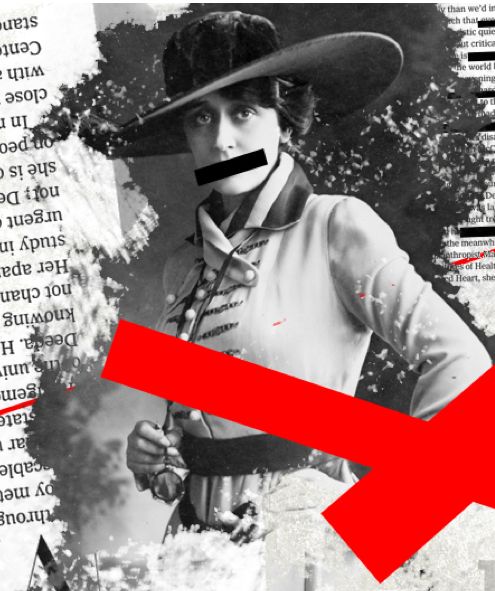Curses!
 The
Verge has an extensive article on the rise of broadcast censorship.
Despite the devotion to freedom of speech, broadcasters have always been
terrified of audience response, and did what they could to avoid
offending anyone. The first incidence of broadcast censorship occurred
in 1921, when Vaudeville performer Olga Petrova visited one of the
earliest radio stations. Petrova was known to be opinionated, and a
friend of birth control advocate Margaret sanger.
The
Verge has an extensive article on the rise of broadcast censorship.
Despite the devotion to freedom of speech, broadcasters have always been
terrified of audience response, and did what they could to avoid
offending anyone. The first incidence of broadcast censorship occurred
in 1921, when Vaudeville performer Olga Petrova visited one of the
earliest radio stations. Petrova was known to be opinionated, and a
friend of birth control advocate Margaret sanger.One night in 1921, Petrova, then engaged at a Newark theater, went to the local radio station WJZ to perform. The Great War had just ended, during the course of which the government had forbidden the use of private radio equipment. After the armistice the Navy tried to retain monopoly control of radio, but Congress put a stop to their power grab. Wartime restrictions were lifted, but the pioneers of broadcasting such as those at WJZ were mindful of potential government interference, and Petrova had a reputation as a firebrand. She disarmed her hosts by announcing that she would be performing her own versions of Mother Goose rhymes, and then proceeded to read the following:Petrova marveled at how broadcasters had to take control over the possibility of offending, as if listeners at home could not control their own radios. That was just the beginning of a system that evolved to protect the delicate sensibilities of the general public. More
There was an old woman who lived in a shoe, She had so many children because she didn’t know what to do.The 1873 Comstock laws, which banned the distribution of “obscene” materials, including information about contraception, were still in force; Petrova had, arguably, kind of broken the law.
"The means for censoring broadcast content came years before the emergence of the first national broadcast network"
“The staff was terrified,” Barnouw relates. “They were certain there would be trouble from Washington. Westinghouse [then owner of WJZ] executives were already nervous about possibilities of this sort, and had wondered what to do if a 'red' got on the air. An emergency switch was provided for the engineer in the shack.” Thus, he could switch to that “phonograph beside him — on his own judgment or on a signal from the studio.”

No comments:
Post a Comment